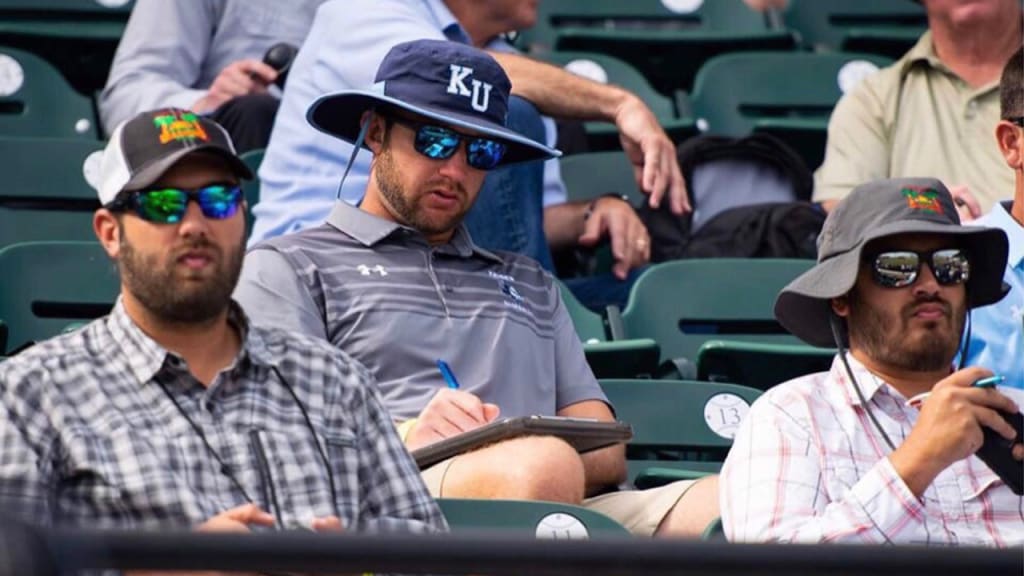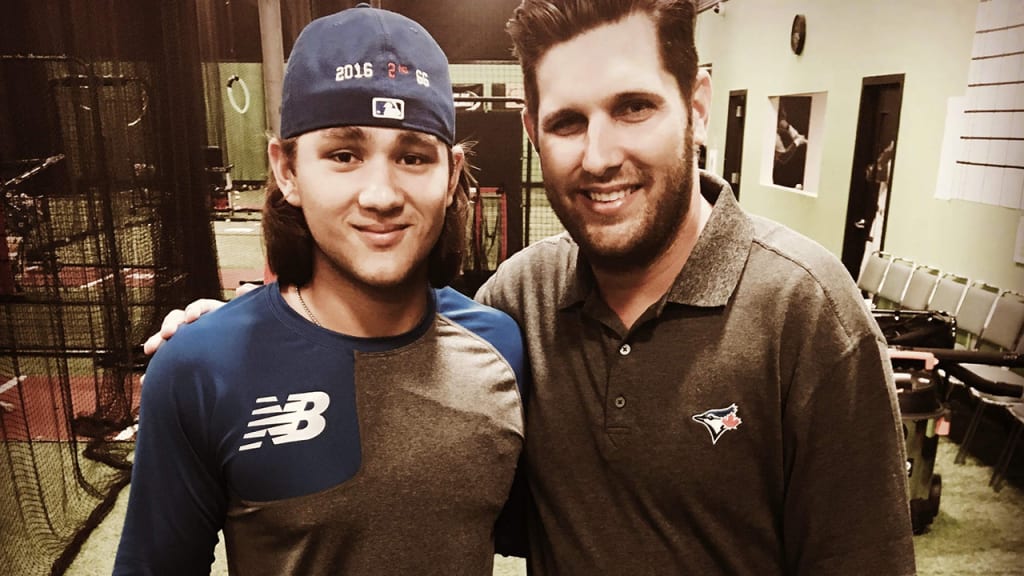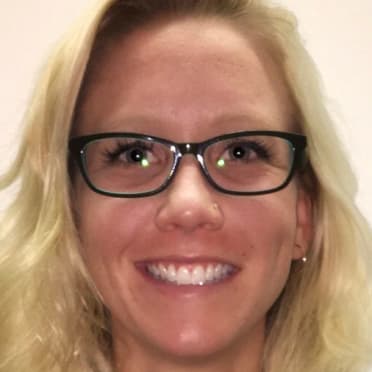
While we wait for the baseball season to get underway and for scouts to get back out on the road for their respective organizations, MLB Pipeline will shine a spotlight on these hard-working evaluators who are typically behind the scenes. We’ll talk to scouts across the game about their best Draft picks, biggest misses, best stories, go-to road food and more.
When Matt Bishoff decided to stop playing baseball, he was 5-foot-2 and heading into high school at Tampa Jesuit, where the Tigers have built one of the most impressive baseball programs in the country.
It wasn’t until almost a decade later that Bishoff returned to the game, following a 13-inch growth spurt, an undergraduate degree in business administration, a year of working for a lawyer and thinking he was going to head to law school, and then a master’s degree in sports administration.
Bishoff is a regional crosschecker for the Blue Jays and has been for the last two years, but on his way there, he completed internships with the University of Florida’s baseball team, Baseball Prospectus, the Yankees and Toronto, getting his start with the Blue Jays doing video in the Gulf Coast and Florida State Leagues. Following that internship he was hired to compile video for the amateur scouting department across the East Coast, before working in the office for two years and then taking on an area for half a decade.
Best story
Bishoff hadn’t yet taken over his area when he signed his first player. In 2013, as the amateur scouting coordinator for the club, the Florida native was given an opportunity to leave the office in Toronto and travel across the country to the World Baseball Challenge in Prince George, British Columbia. His primary task was to get eyes on the Cuban team, but he ended up doing a little more.
“Roemon Fields is such a cool story,” Bishoff said. “It’s disappointing that he never got [to the big leagues] with us, because he got so close. He was the MVP of our Triple-A team in ’17, and he’s got a loud tool [in his speed]. ... But I was watching the US team, which was a JUCO All-Star team from the northwest. Fields has just finished up his senior year at Bethany College in Kansas, a small NAIA school, and he thought baseball was over. He didn’t get drafted, even though there was some interest from teams, but it never worked out for him. So he was back home in Seattle, working two jobs -- he was a mailman and he was working at the Lids at the mall -- when his old JUCO coach called and asked him to play in the tournament.
“He almost didn’t play -- I remember someone had to talk him into playing. When I saw him, he was running down balls, and I started doing my homework. In 2012, he led the country in NAIA in hitting with a .450 average in his junior year. In his senior year, he hit .348. He’d had some success and he’s got the big tool in the speed, and he could defend center field. So I called our guys and luckily they agreed to sign him. Then he went out and in his first season he went to Vancouver and set the stolen base record [with 48 in 72 games], which was pretty neat. I was just hoping he would get playing time and he won the Opening Day starting job there. I hope he gets another chance with another team, but if he doesn’t, he’s had a pretty awesome career and I’m proud of him.”
Best Draft pick
“I hate to pick a favorite because they’re all good guys, but Bo [Bichette] has probably been the most successful so far,” Bishoff said. “He was my favorite guy [in 2016], but my area was loaded that year. He was the ninth person drafted out of Florida that year. The University of Florida alone had A.J. Puk, Dane Dunning, Logan Shore, Buddy Reed, Pete Alonso all that year. But Bo could just hit. He was so good.
“The impressive thing about Bo was his maturation. I went from, in the summer before the Draft, wondering where this guy was going to play defensively and hoping he could stay on the infield, to the next spring believing that this guy’s got a chance to play shortstop. That’s all credit to Bo’s makeup. He went from that summer being probably a 40 runner [on the 20-to-80 scouting scale] to flashing plus run times by Draft time. And watching his growth in pro ball, now he’s a 70 runner and an everyday shortstop. Those are things that speak to his character and his work ethic, because that’s the separator.

“The other big thing with Bo was seeing his two-strike approach evolve. It’s more exaggerated compared to any other player. ... I remember his first couple weeks of the [high school] season, he wasn’t struggling, but hitting .400 instead of .500, and he had struck out a couple times and he was taking massive swings with two strikes. Then I saw him again the next week and he had cut down his swing with two strikes, eliminated the leg kick, and I asked him about it. I don’t want to paraphrase him, but he basically said he wasn’t giving the pitchers enough credit and that he was too good to be striking out against his local competition. From that point on and for the rest of the season, I don’t even remember him striking out again. That’s how good he was. He’s a special kid.”
Biggest standout
“I saw [Francisco] Lindor my first year scouting and he still sticks out above a bunch of guys. It was the combination of tools and outstanding instincts and feel for the game. He could really hit, and all the time you see guys and just hope they can stick at shortstop. It’s pretty rare you see a guy and he’s a slam dunk, but that was Lindor, combined with being a switch-hitter with more power than you would think he’d have for his size.”
Biggest miss
“It’s still early in his career, but I definitely didn’t have Pete Alonso hitting 53 homers in his rookie year,” Bishoff said. “He’s one I’ve spent a lot of time thinking about, because he always had power and he always hit at Florida, he just had some unlucky injuries throughout his career. I won’t say I missed on the makeup because I thought it was good, but I didn’t give enough credit, it was really good makeup. You can see it now. It seems like he’s one of the most confident guys in the league when he steps in the box and you can tell the work ethic’s there, and he seems like an all-around good guy.”
Advice to industry hopefuls
“So many things,” Bishoff said. “The biggest thing is work ethic. You have to want to do it, you have to love it, and enjoy doing it. When people see me at the park, I’m usually in a really good mood because my favorite thing in the world is to go watch baseball. ... Have fun, a good work ethic, and build up your network, get to know as many people as you can. If you want to get people’s respect, go work, do something every day. If you put in the work, the opportunities will create themselves.”
